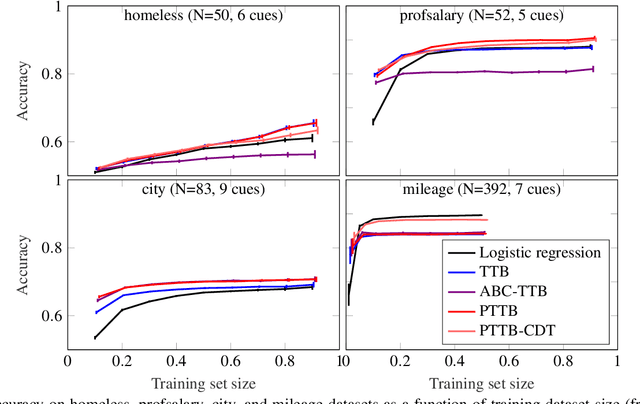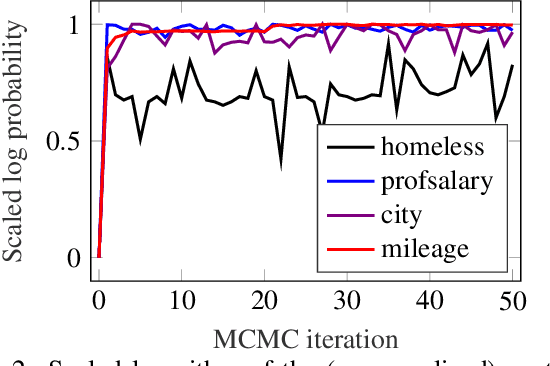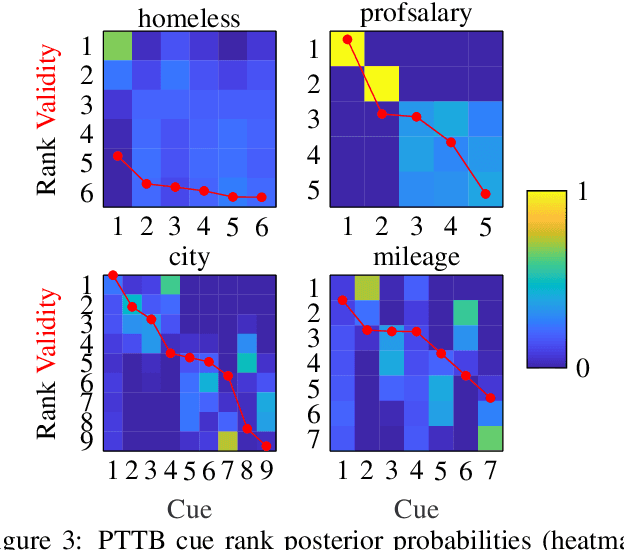Probabilistic Formulation of the Take The Best Heuristic
Paper and Code
Nov 01, 2019



The framework of cognitively bounded rationality treats problem solving as fundamentally rational, but emphasises that it is constrained by cognitive architecture and the task environment. This paper investigates a simple decision making heuristic, Take The Best (TTB), within that framework. We formulate TTB as a likelihood-based probabilistic model, where the decision strategy arises by probabilistic inference based on the training data and the model constraints. The strengths of the probabilistic formulation, in addition to providing a bounded rational account of the learning of the heuristic, include natural extensibility with additional cognitively plausible constraints and prior information, and the possibility to embed the heuristic as a subpart of a larger probabilistic model. We extend the model to learn cue discrimination thresholds for continuous-valued cues and experiment with using the model to account for biased preference feedback from a boundedly rational agent in a simulated interactive machine learning task.
 Add to Chrome
Add to Chrome Add to Firefox
Add to Firefox Add to Edge
Add to Edge